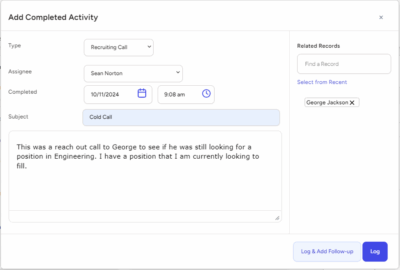I recently published a blog post about the nine ways that recruiters can spot a “dead horse employer.” However, what about the other side of the equation . . . namely, the candidates?
Well, I have the answer. Below are 10 ways recruiters can spot a “dead horse candidate”:
1. Candidates who are always looking. This type of candidate hasn’t made the mental commitment to change jobs, and would most likely accept a counter-offer or use the offer as a “lever” to get what they want from their present employer.
2. An incomplete data sheet. Information has been left off and/or there are gaps. Time frames just do not “jibe.”
3. They won’t make themselves available on “your” timetable. They don’t see you as a professional. They will only interview on weekends or after hours. They need to be made aware of what’s required of them.
4. Resumes that are all feature-oriented. Features are dead things. A resume is a logical presentation and people buy emotionally. Therefore, a resume that is all feature-oriented is difficult to sell. Also, resumes may be composed of features because the candidate really doesn’t have any accomplishments. The problem facing us here is that we need those accomplishments from previous employers to turn into benefits for the new companies—the companies to which we are marketing.
5. They won’t return your calls. Again, they don’t respect you as a professional. Or they don’t need you. Or there is no sense of urgency. Take your pick.
6. They’re reluctant (or won’t) tell you where and/or with whom they have interviewed. They keep it a secret. They act as if they are going to compete with you for their candidacy. To combat this, you can say two things: (1) “Where have you been? I don’t want to cover the same ground where you’ve left a resume and identified yourself. Therefore, I don’t want to go back into those same companies”; and (2) “I need to know where you might have your candidacy pending and I will need you to ‘unpend’ yourself. In other words, I can’t work with you if you are competing with me in regards to your candidacy.”
7. They’re reluctant to watch interviewing films or listen to interviewing tapes. Again, the candidate is not treating you as the expert. They believe that they are the experts in interviewing. (Special note: Beware any candidate who is a “terrific interviewee.” Those who are too adept at interviewing merely have done it a lot, which means they might not be quite as proficient at the technical aspects that relate to their job. They have become “professional interviewees.”)
8. “No shows” or late for appointments. This is an indication of a sloppy person and a sloppy attitude, and it will probably carry over into their new position, should you be lucky enough to place this person. It also reflects directly (and negatively) on you and your recruitment firm.
9. They’re reluctant to talk relocation with their family. Let’s say that the candidate wants to move. No problem for them, but keep in mind that when you are facing a relocation, you are looking down the cylinders of a double-barreled shotgun. You are either going to have to address the not-so-recent phenomenon of a two-income family or the reality that there might be children (especially teenagers) who will be affected by the move. It’s not the person doing the work. Therefore, if you have a candidate who will not discuss relocation with his/her family, there is going to be a major bump down the road. You will undoubtedly have a turn-down or a fall-off later on in the process when the family suddenly discovers that the candidate is contemplating a move.
10. Reluctant to submit their resignation in writing, leaving them open to a counteroffer. What you want is for the candidate to write a letter of resignation at the beginning of the process because by physically writing this letter, the candidate is mentally making the break with their current employer.
— — —
Bob Marshall of TBMG International, founder of The Marshall Plan, has an extensive background in the recruiting industry as a recruiter, manager, vice president, president, consultant, and trainer. In 2015, Bob is celebrating his 35th year in the recruitment business. Marshall can be reached at bob@themarshallplan.org or at 770.898.5550. His website is www.themarshallplan.org.








